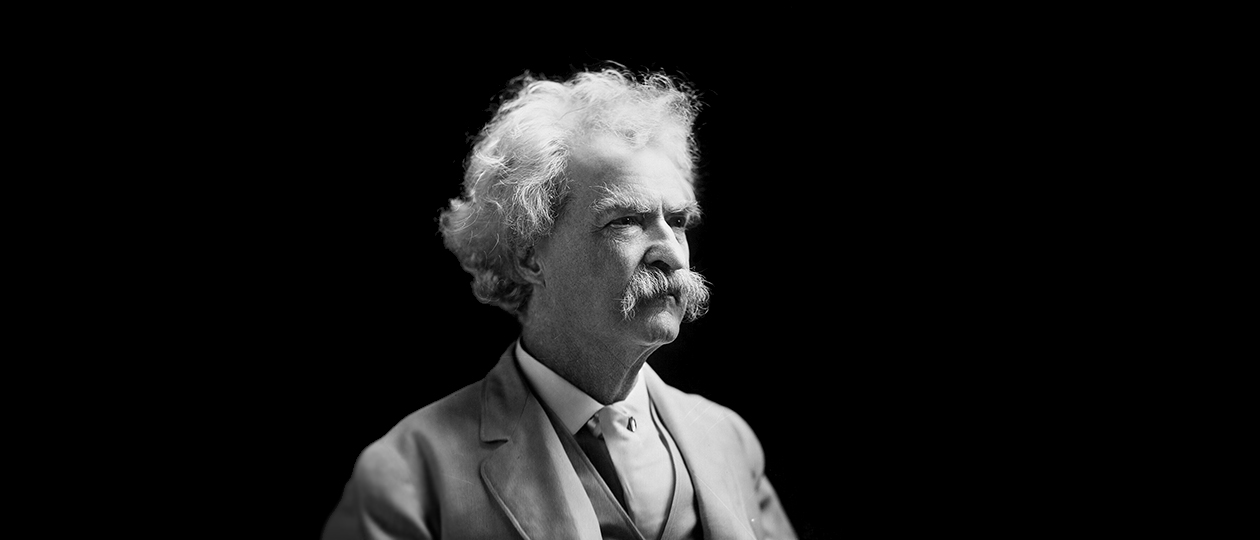
At the end of January 1985, the 35th boxing match between the USSR and USA teams took place in Reno, Nevada. In connection with this, I visited this city, where I spent several days in the company of our boxing team.
Before the match, the organizers of the competition arranged for us a bus tour of Virginia City, which during the Californian “gold rush”, with the discovery of silver deposits, briefly became the richest city in the USA with a population of 25 thousand people. When the silver rush died down, it turned into a ghost town.
It was in Virginia City that the future great American writer Samuel Clemens first used the pseudonym Mark Twain. This happened after he failed as a silver prospector and decided to try his luck in the newspaper field.

In February 1862, he began writing for The Territorial Enterprise, the largest newspaper in Nevada at the time, and was soon offered the position of city news editor with a decent weekly salary of $25. Two years later, Mark Twain moved to San Francisco, but continued to work with The Territorial Enterprise until his departure to Hawaii (March 1866). Subsequently, almost the entire archive of this newspaper was destroyed in a fire, but in 2015, employees of the University of California published a collection of 110 of Twain’s publications in The Territorial Enterprise, which were found in the form of reprints in other publications in the far western United States. By 1985, only the name remained of that newspaper, and Virginia City appeared to our eyes as a nondescript backwater with rare passers-by. I took a photo with one of them, a typical drunkard, for which, as was required, I gave him 25 cents.

And here is the one-armed bandit, of which there are countless in the state of Nevada, did not want to part with the money, no matter how hard the head coach of our boxing team, Artyom Lavrov, tried to shake the soul out of the slot machine.
There was also a mini-exhibition dedicated to Mark Twain in the basement of The Territorial Enterprise.” There I had the chance to touch the table where he wrote his articles and notes (note: to the right of the table is a dictaphone from that era).

Surprisingly, but in a different sense, the room where visitors were also taken was a latrine. To avoid any doubts, the exhibit was decorated with the inscription “Mark Twain sat here”. The Americans have a peculiar idea of how to preserve the memory of celebrities!

A couple of years before my trip to Virginia City, there was staged the play The Boys In Autumn, a fictional continuation of the story of Tom Sawyer and Huckleberry Finn, who, by the will and fantasy of the author, Chicago playwright Bernard Sabath, found themselves in America in the 1920s in their declining years. The role of Tom Sawyer (in the play, Tom Gray) was then played by Kirk Douglas, and Huckleberry Finn, transformed by Sabath into Henry Finnegan, was played by the equally famous Hollywood actor Burt Lancaster.
Who in the Soviet Union didn’t know and love Mark Twain, deemed “the first truly American writer” by William Faulkner! And who didn’t read Adventures of Huckleberry Finn, which, in the words of the other great writer Ernst Hemingway, “all modern American literature comes from”. It’s no surprise that the original idea of Sabath to finish the fate of two childhood friends has provoked a great interest in our country, too? Spring 1983, I called Sabath and interviewed him for The Soviet Culture Newspaper.

Like Tom and Huck, Bernard also grew up on the shores of a great river Missisipi, whcich for an American man holds the same value as the Volga river does for a Russian. He dedicated his life to the works of Mark Twain, read hundreds of boos and research papers on the great writer, filled hundreds of diaries and notebooks, where he recorded anything on his voluntarily-made idol. He used this foundation to construct several plays dedicated to Twain. “The Boys in Autumn” is usually considered to be his best, both by the experts and the author himself. It is no coincidence the play is still being staged in various cities of the United States, and such veterans of the American cinema and theater as George Scott and John Collum considered it an honor to be a part of the production.
The idea for “The Boys in Autumn” didn’t come to Sabath by chance.
“I was consumed by thoughts I took from different sources on Twain and his characters. Futher more, I was tormented by curiosity: what happed to Tom and Huck once the author parted them with the reader? I was helped by Twain himself. It is clear in his notes and diaries that he considered his characters the embodiment of the American Dream.
But the Dream remained just that, a dream, and Twain understood this earlier than many others. That’s why Tom and Huck could not remain the same in their old age as they used to be in their childhood, cheerful and optimistic. It is no wonder their creator depicted Tom as either blinded or as a survivor of some other hardship. That’s where the bitter tone of The Boys in Autumn comes from. All I see around supports that such an outcome for the adventures of Tom and Huck was a right choice.”
After our meeting, we were exchanging letters and calls. He was an extraordinary person in every way. You must admit that it is uncommon for a contemporary servant of the Muse to express a sentiment like this:
“I, like all others, have a single life, but there’s no limit to knowledge. Therefore, I must study at all times, polishing my craft. Money? Money is necessary, sure, but it must not overshadow the most crucial thing. Life is life, and sadly, not everyone, can become a big writer. There are masters and students. Some leave behind the works of the universal value , others are satisfied with entertaining the public. Perhaps both of them matter. But it is the writers recognizing themselves as the societal consciousness standing for peace who are needed the most. In America it is them we are lacking in…”
It came out that Sabath is an old fan of the classical Russian literature.
“I always come back to Leo Tolstoy. He strikes me with the power of talent and love for the other. And Chekhov… What sensitivity and compassion for humans of any kin and title!”
Applying his characteristic artistic method to the heroines of Chekhov’s “The Three Sisters”, Bernard Sabath composed the “sequel” for a play by the title of “Moscow Lights”.

In 1980s, Bernard Sabath satisfied his thirst for Russian culture by reading cover to cover the “Soviet Life Magazine” published in the United States, and by going to every screening of the Soviet films. Those, however, were a rarity on a big screen, just like all of the other non –American productions, but the university Sabath was teaching at found a way to organize their regular screenings. This is how the author of “The Boys in Autumn” got a chance to watch “Adventures of Tom Sawyer and Huckleberry Finn”, a tv film by Stanislav Govorukhin. When I asked him to share his impressions, he said:
“The film was shown with no translation, but it as clear that your cinematographists made it with great love and respect for Twain. And from the technical perspective, the film has a very high quality. Can it ever be compared to the saccharine shows based on the works of Twain that they show on local TV?”
“The Boys in Autumn” sparked the curiosity of “A Soviet Culture” staff writer, who was organizing my publications in this magazine. He had an idea to stage this play in Moscow, and, by his request, I have once again called Bernard Sabath. He was excited:
“In that case, Moscow will become the first city outside the US where my play will be a part of theater repertoire!”
Soon I received a parcel with the text of “The Boys in Autumn” and forwarded it to the Central Theater of the Soviet Army, to the chief director Yuri Yeryomin. During the theater season of 1983- 1984, Sabath’s play was acted at the world’s biggest stage – The Central Academic Theatre of the Russian Army.
On the New Year’s Eve of 1985, Bernard Sabath sent me another letter, with his gratitude for my help.






